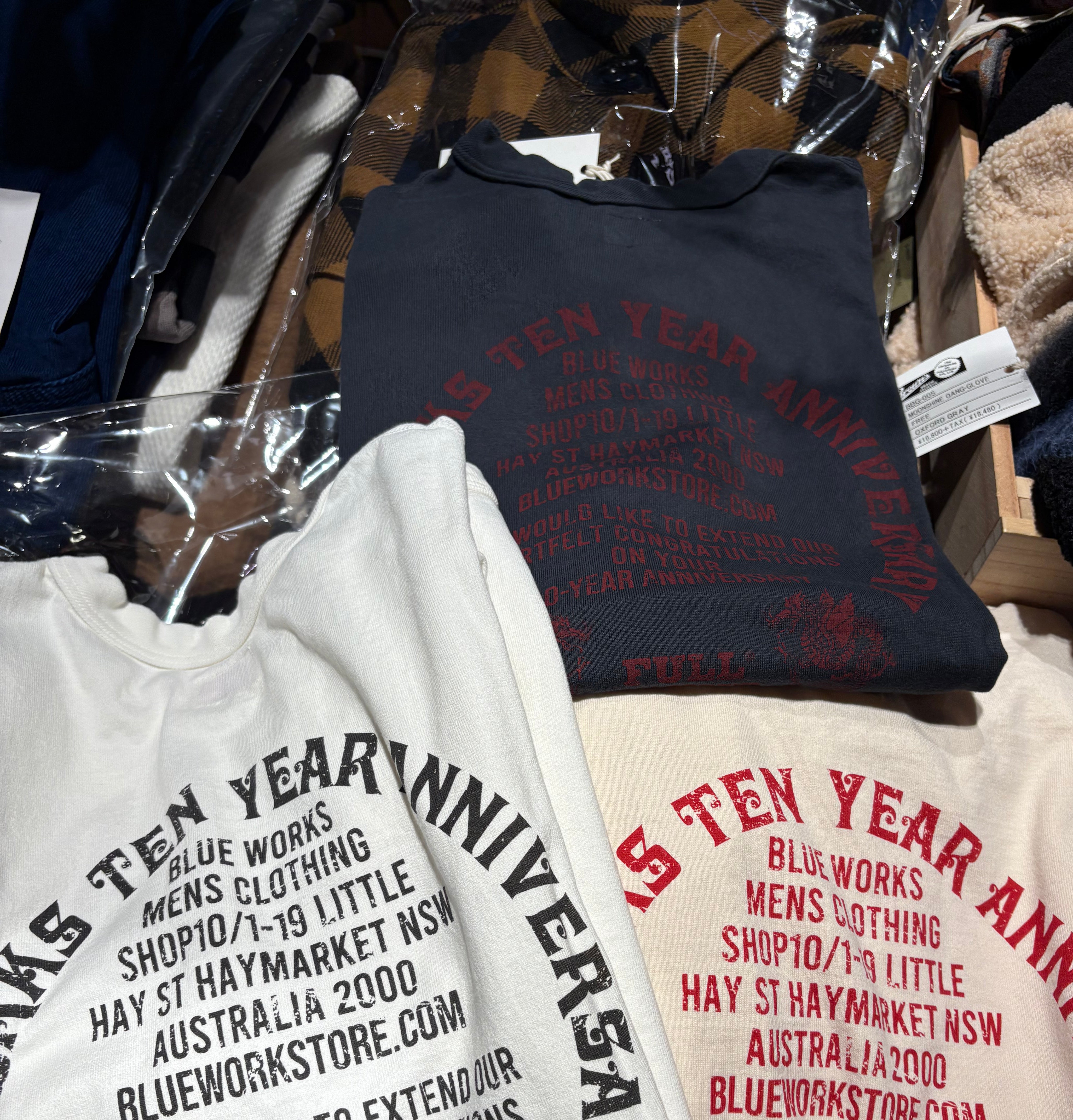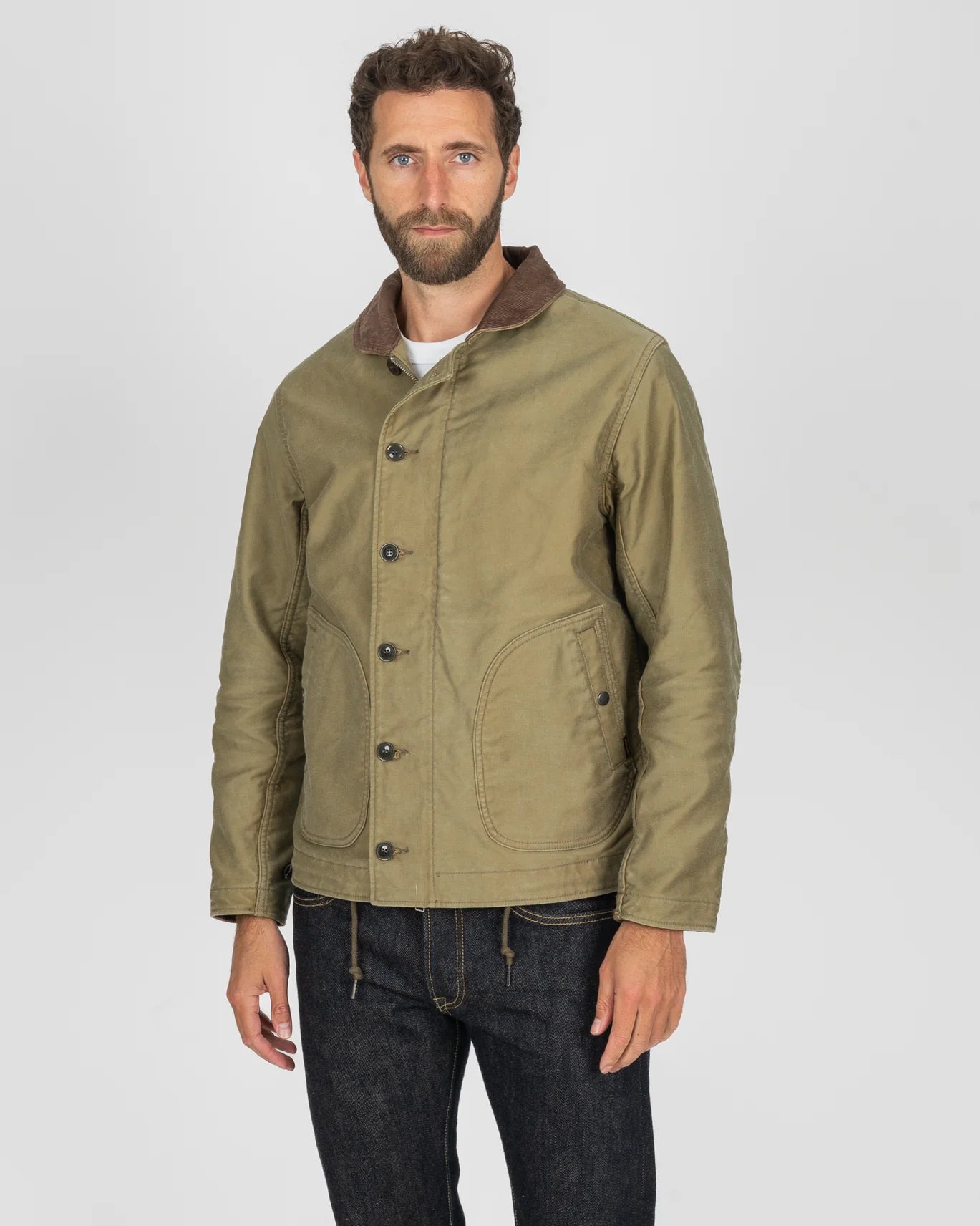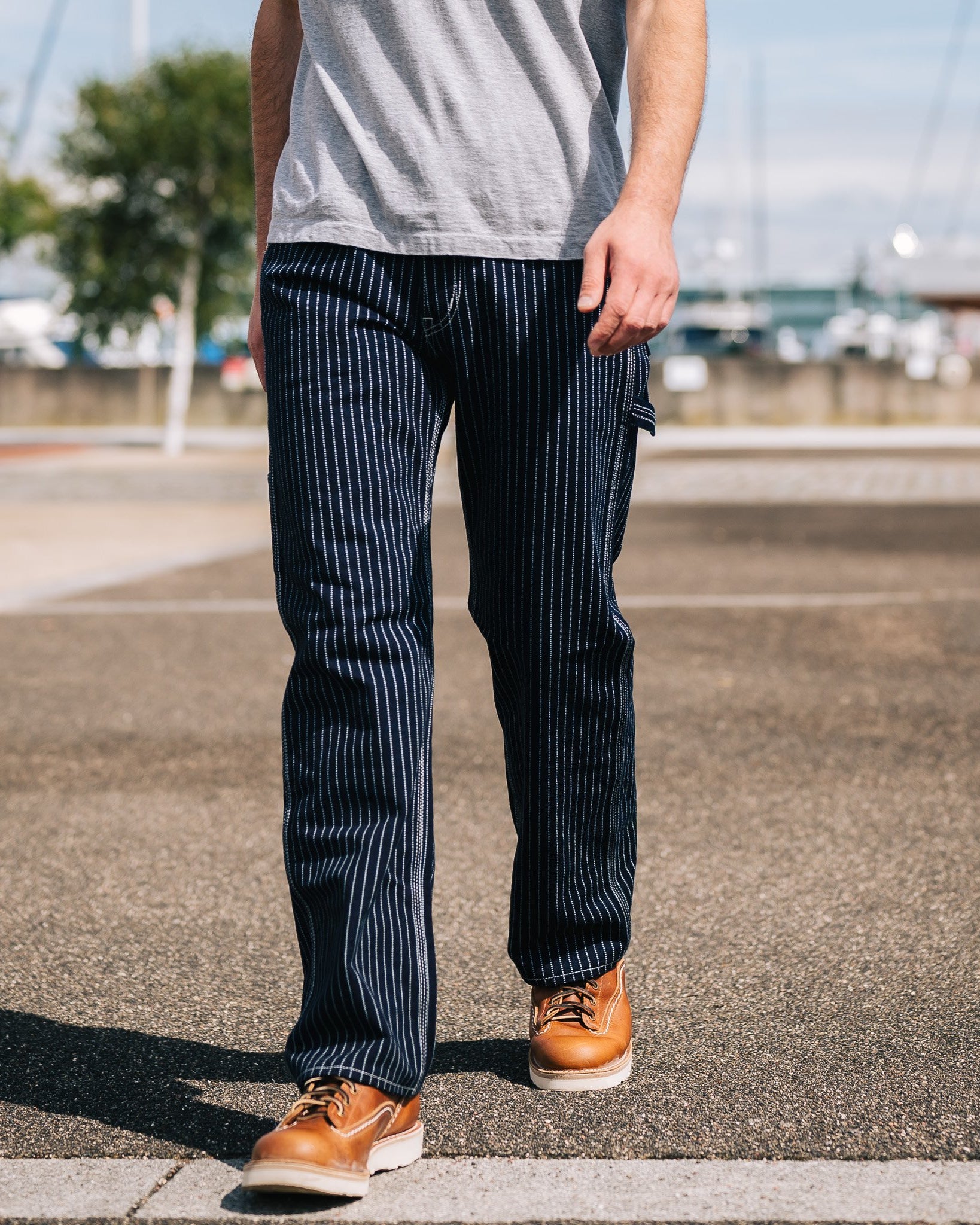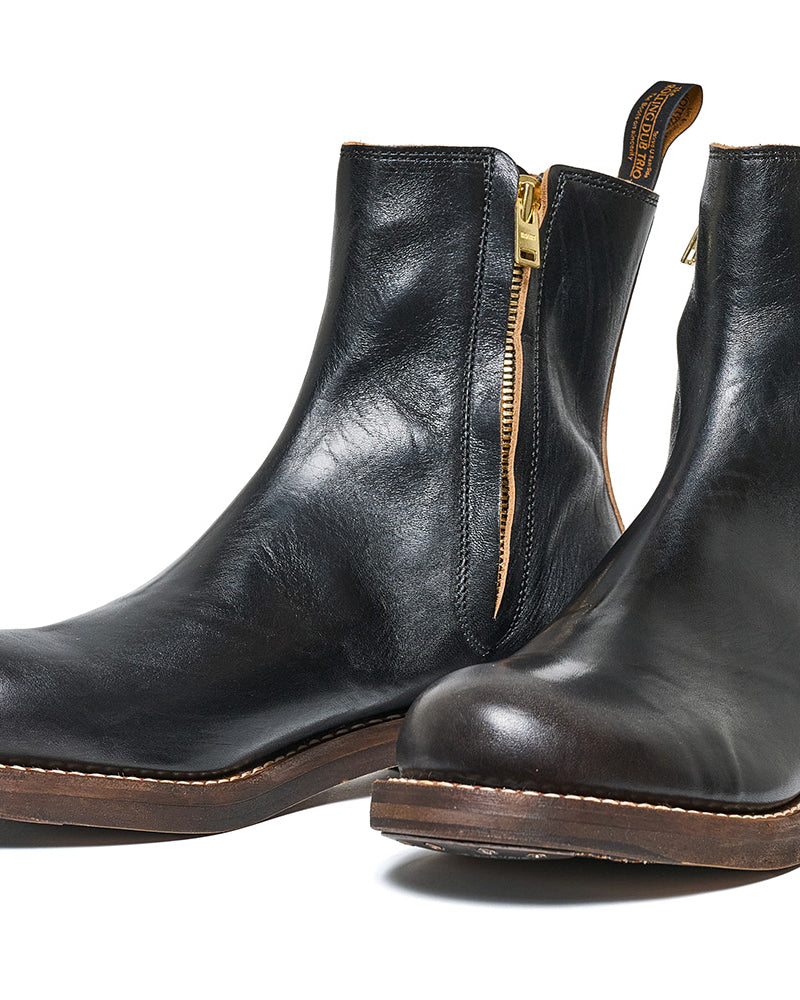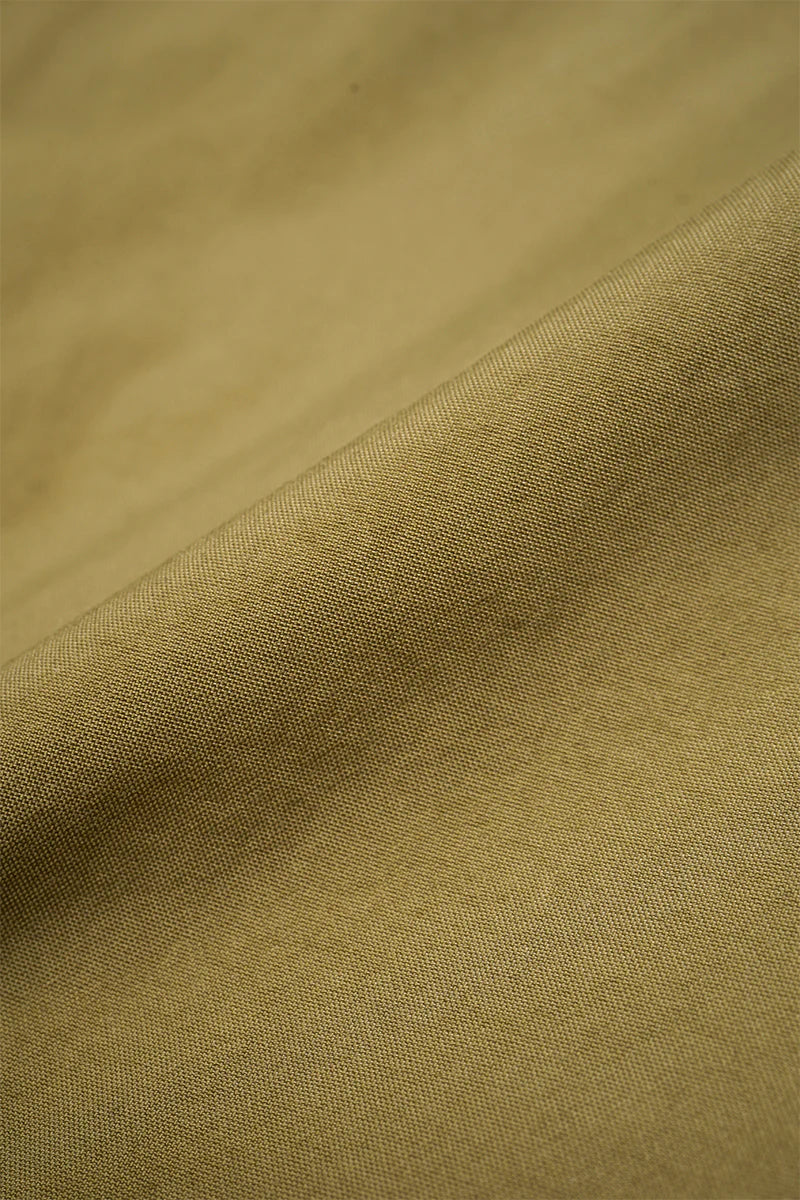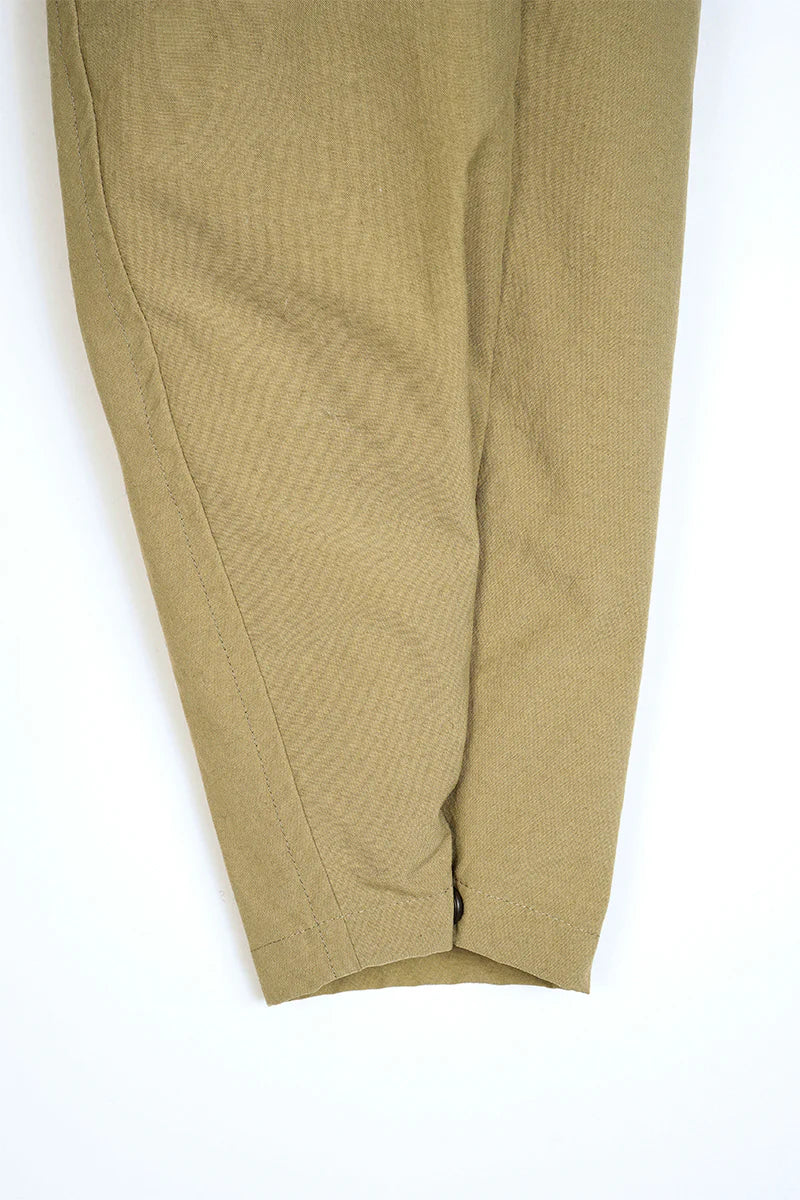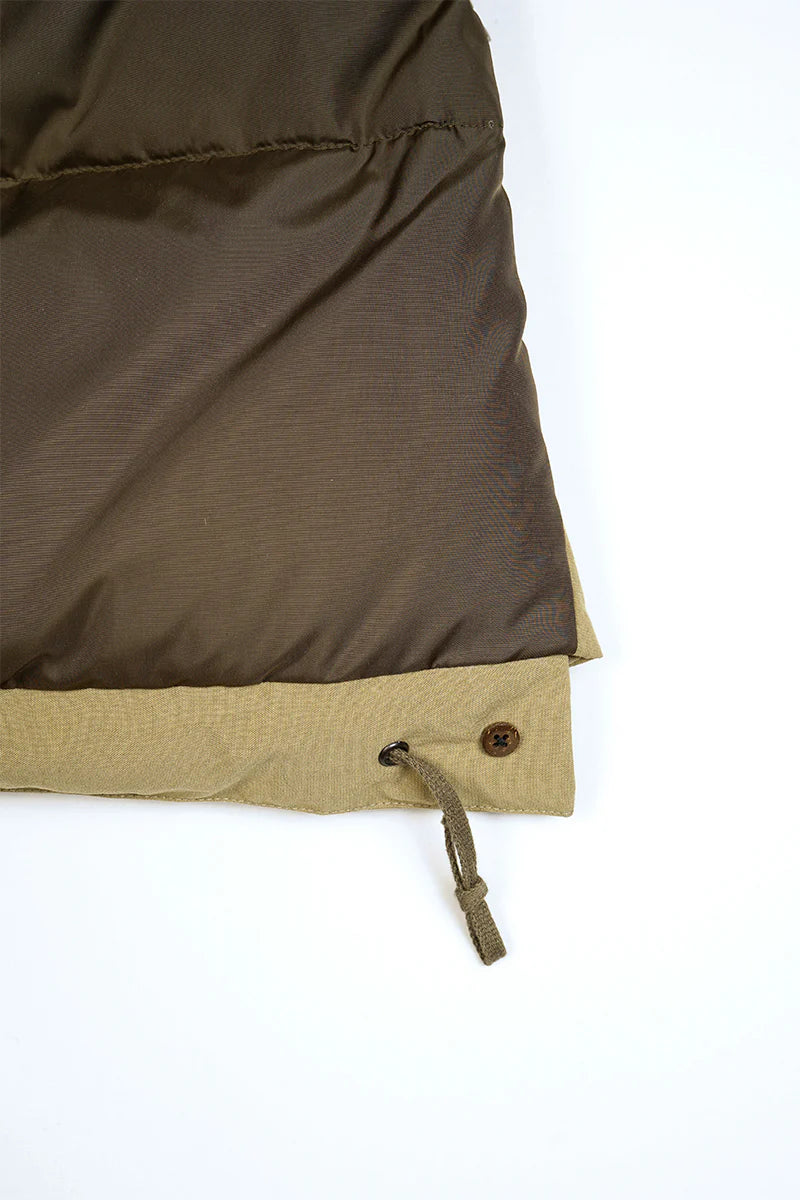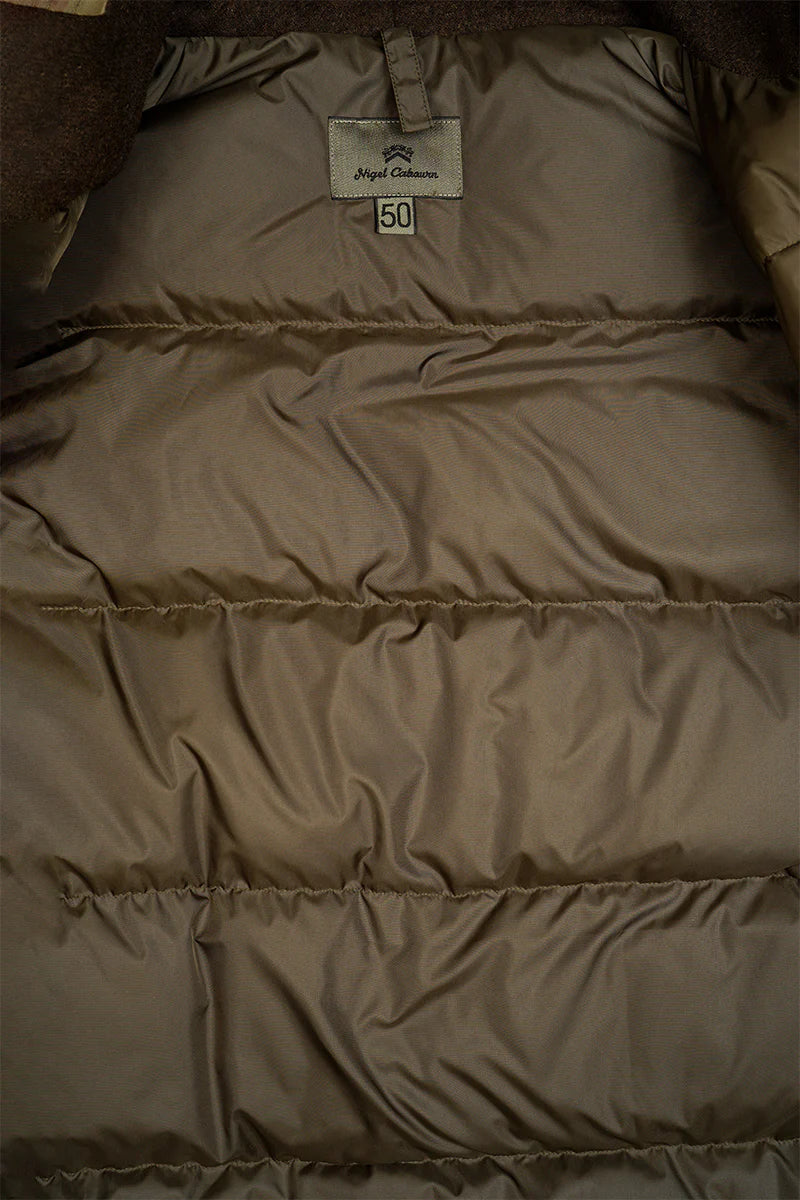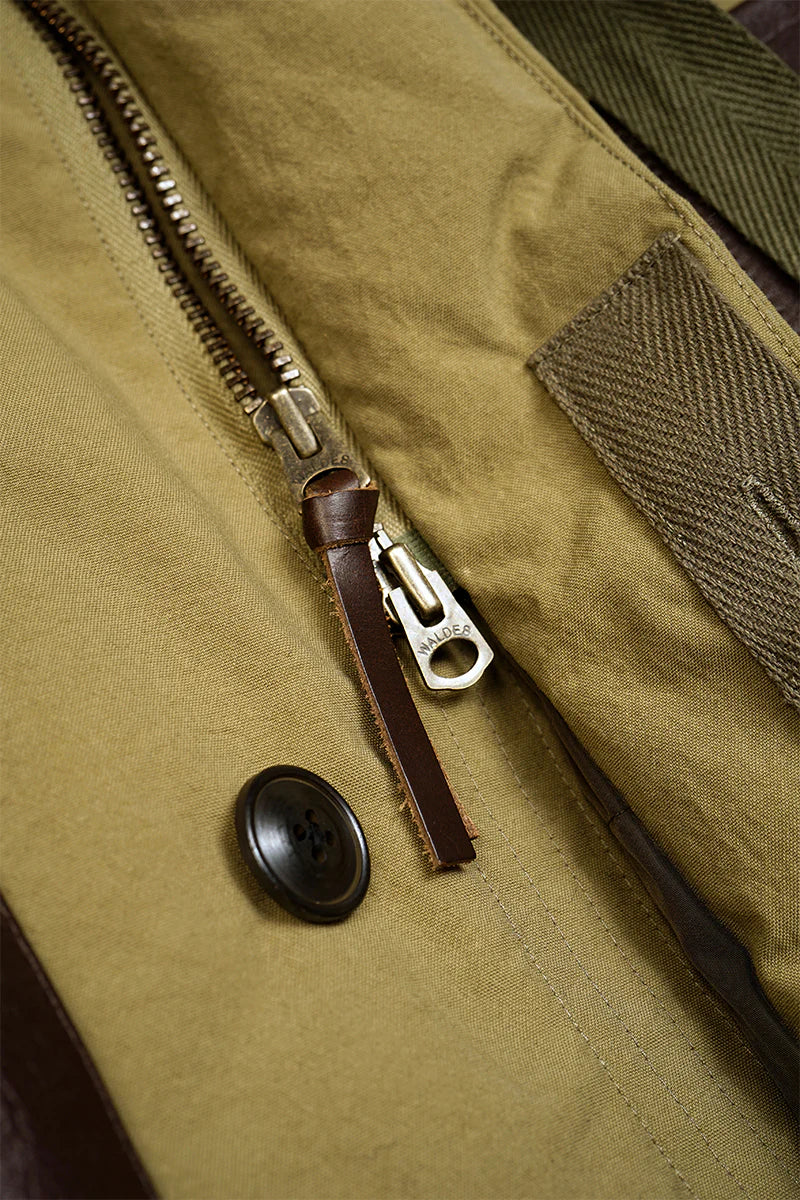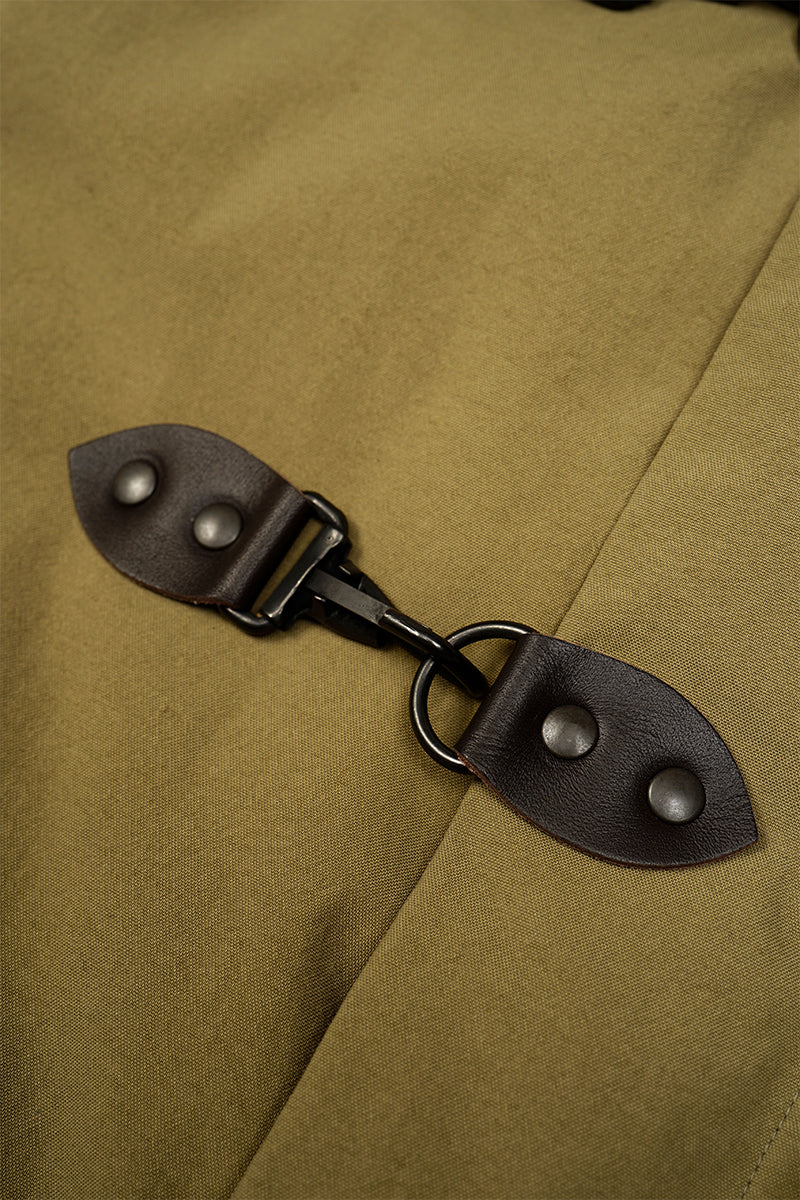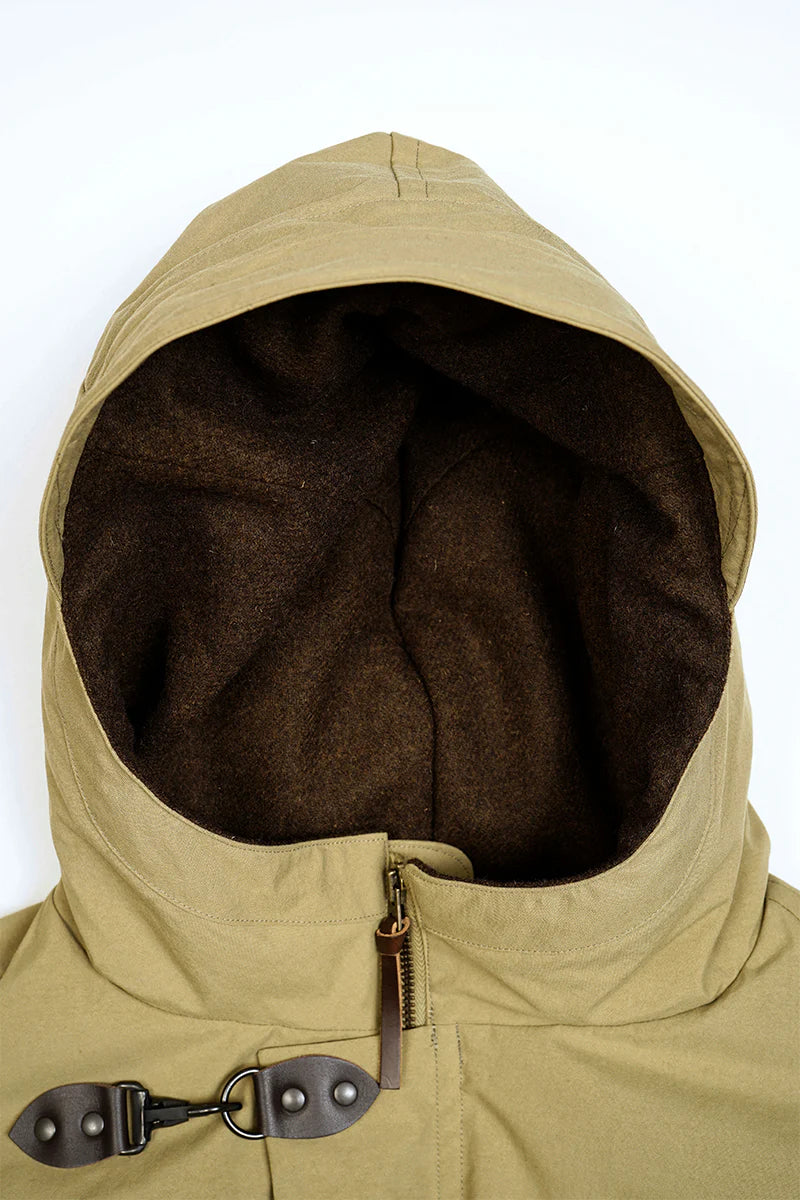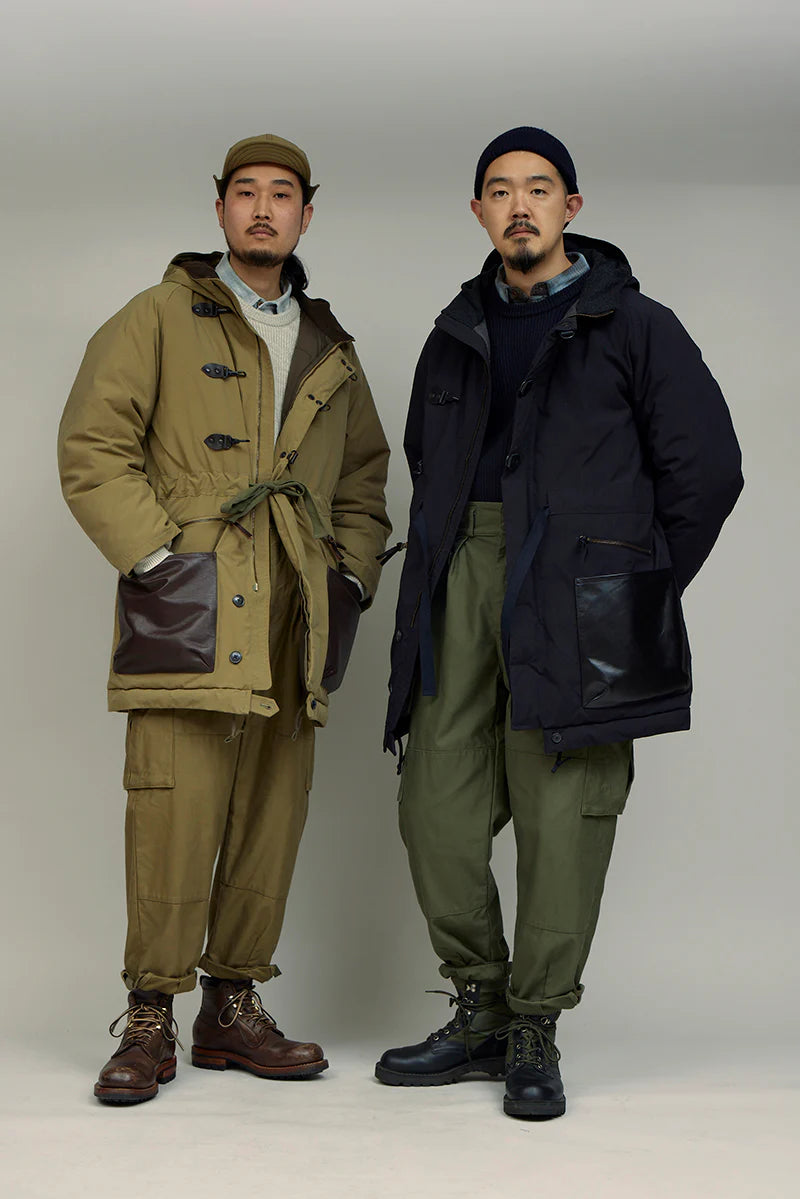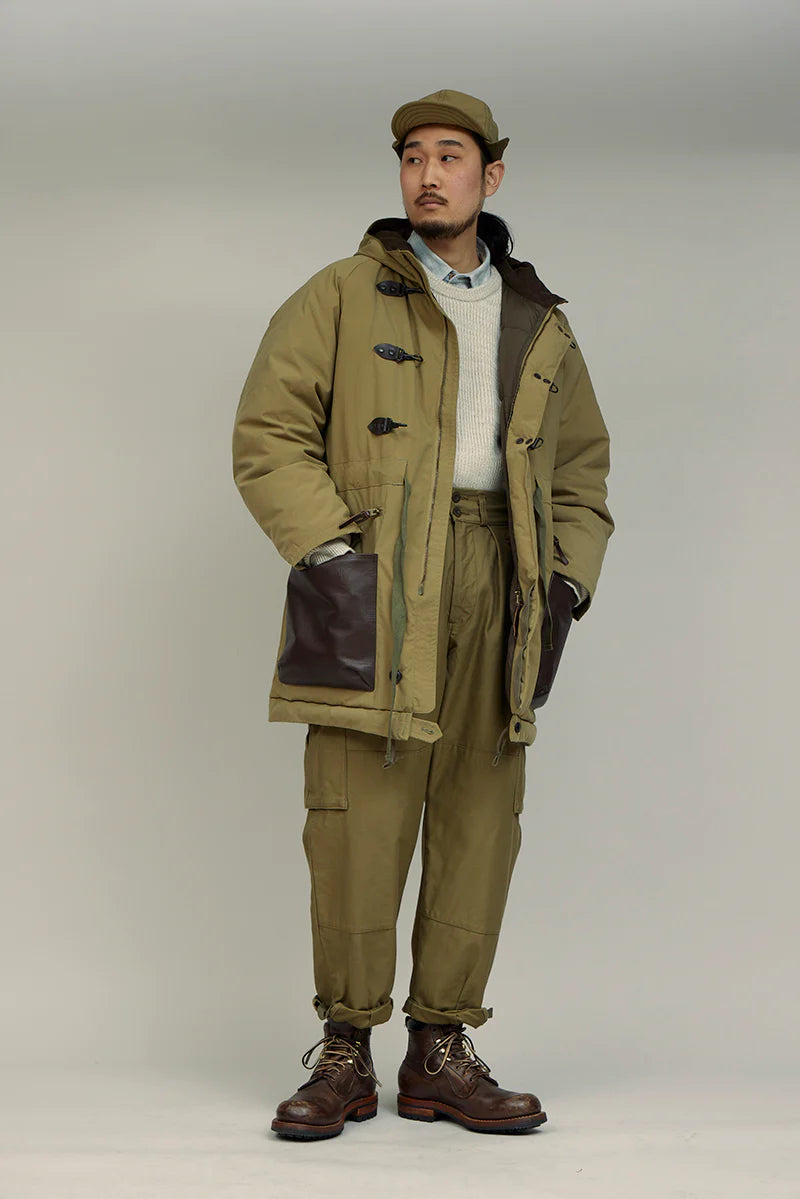Nigel Cabourn MAN / Mountaineer Down Jacket 20% off
Pickup available at Shop10/19 little hay street Haymarket NSW Australia
Usually ready in 24 hours
Description of item
A high-quality down jacket made from the chest feathers of waterfowl. It efficiently retains a layer of air warmed by body heat while simultaneously releasing excess moisture, making it an ideal material for wearing in cold regions. The outer material is nylon with a taslan finish. Threads used in clothing and other items are broadly divided into long fibers (filament) and short fibers (spun) based on their structure. The former are representative of nylon thread and silk thread. They are made from a single very long fiber with a smooth, uniform thickness and texture, like fishing line. The latter are all natural fibers other than silk, such as cotton and linen. The length of a single fiber can be as short as a few millimeters, and most are up to about 5 centimeters at most. These short fibers are twisted together (twisted) to make a single thread. It is rougher than smooth long fibers, because the ends of the short fibers become fuzzy and stick out evenly from all sides of the thread. This fabric is made of long nylon fibers (filament), but has a rough, matte texture and a dry touch. This is made by tying together extremely fine long fibers into bundles, then wrapping the same long fibers in uneven loops using compressed air. It is not twisted like short fibers. These uneven loops lead to the uneven matte texture. Since the raw material is nylon filament, it is a sturdy fabric with strong tear resistance. The design is a combination of the sheepskin flight jacket operated by the USAAF for only one year from 1941 to 1942 and the mountain jacket used by mountain troops. Since military aircraft at that time were not sufficiently pressurized, the former was also known as the Alaska-based air force, as it was intended to be worn in the extra heavy zone where temperatures could drop to minus 50 degrees, and was provided to aircraft based in Alaska. Modern passenger aircraft are pressurized just like on the ground, so the temperature is the same as on the ground. However, pressurization also makes it vulnerable to accidents. If even a small hole is made in the aircraft, the people and equipment inside the aircraft will be sucked out immediately, causing further damage to the aircraft. That's why modern military aircraft are intentionally not sufficiently pressurized.
Size chart (unit: cm)
| size | Width | Length | sleeve length |
|---|---|---|---|
| 46(S) | 62.5 | 86.0 | 83.0 |
| 48(M) | 65.0 | 89.0 | 87.0 |
| 50 (L) | 68.5 | 92.0 | 90.0 |
| 52 (XL) | 71.5 | 95.5 | 93.0 |

